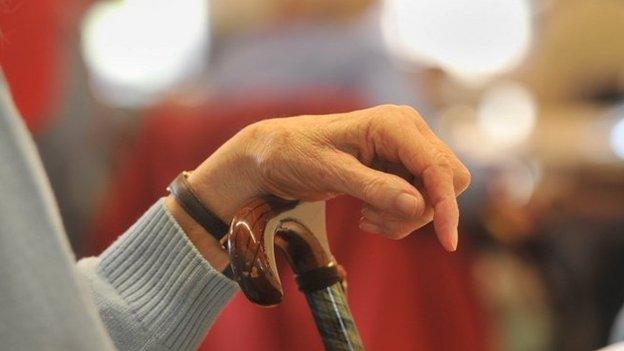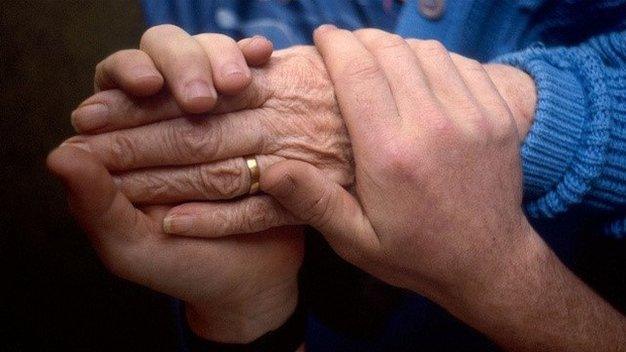New laws streamline care in Scotland
- Published

The way care is organised is radically changing across the whole of Scotland.
Large parts of health board and council budgets are being merged in a bid to cut bed-blocking and aid the transition to nursing home care or home care.
People with long-term conditions, disabilities and the elderly are expected to see the greatest benefit.
The Public Bodies (Joint Working) (Scotland) Act has been described as the most substantial reform to the NHS in a generation.
It forces councils and the NHS to work together to provide more streamlined services.
The two organisations have to decide which one of them is going to take the lead in decision-making, or delegate those decisions to a separate body.
There is some evidence that co-ordinating care can have a significant effect on the quality of life of frail older people and people with long-term conditions.
It is also associated with lower costs.
The Scottish government hopes it will ease the pressure on hospitals by speeding up the journey of patients.
In order to drive improvements, a new target is being set for delayed discharges.
Integration authorities
From 1 April, no-one should wait more than 14 days to be discharged from hospital into more appropriate care. The current target is four weeks.
In March it was announced that health and social care partnerships would be piloted in 29 areas in England, although so far only Greater Manchester has gone as far pooling its entire health and care budget.
In Scotland, it is estimated that at least 60% of health board budgets and 72% of local authority social care budgets will be handed over to the new "integration authorities".
In Wales an "integrated care framework" was published by the government last year, promising closer working between local government, health, housing and the voluntary sector.
Northern Ireland has had an integrated health and social care system since the early 1970s with its five health and social care trusts.
The Highlands of Scotland have had merged health and social care budgets since 2012.
The NHS became the lead agency for adult care, while the council took over responsibility for children's services.
However, it has not proved a magic bullet. NHS Highland experienced difficulties with blocked beds this winter, which was blamed on a lack of care home places and support packages for elderly patients to return home.
Last year, just under 150,000 people received some form of social care at home.
In addition there are 35,000 long-stay residents in care homes in Scotland and thousands of other people who use social care services because they have a disability.
- Published27 March 2015

- Published28 January 2015

- Published13 June 2013
